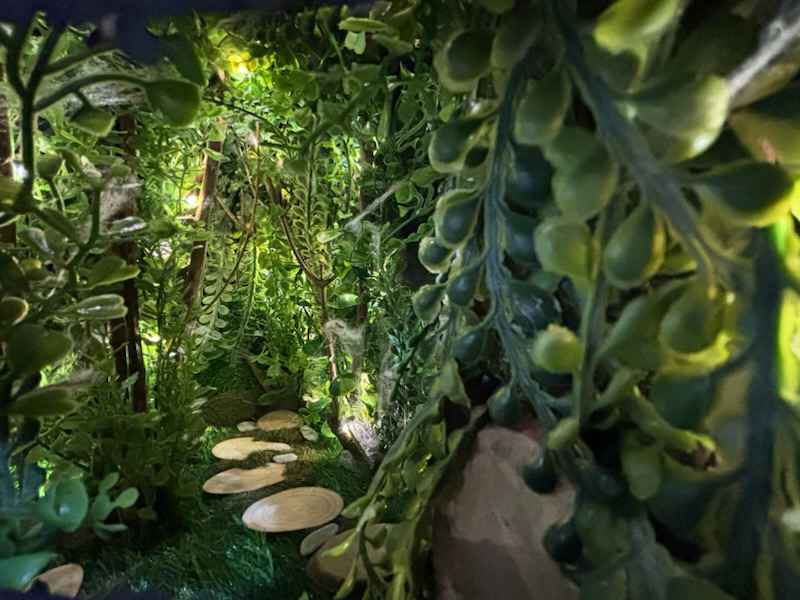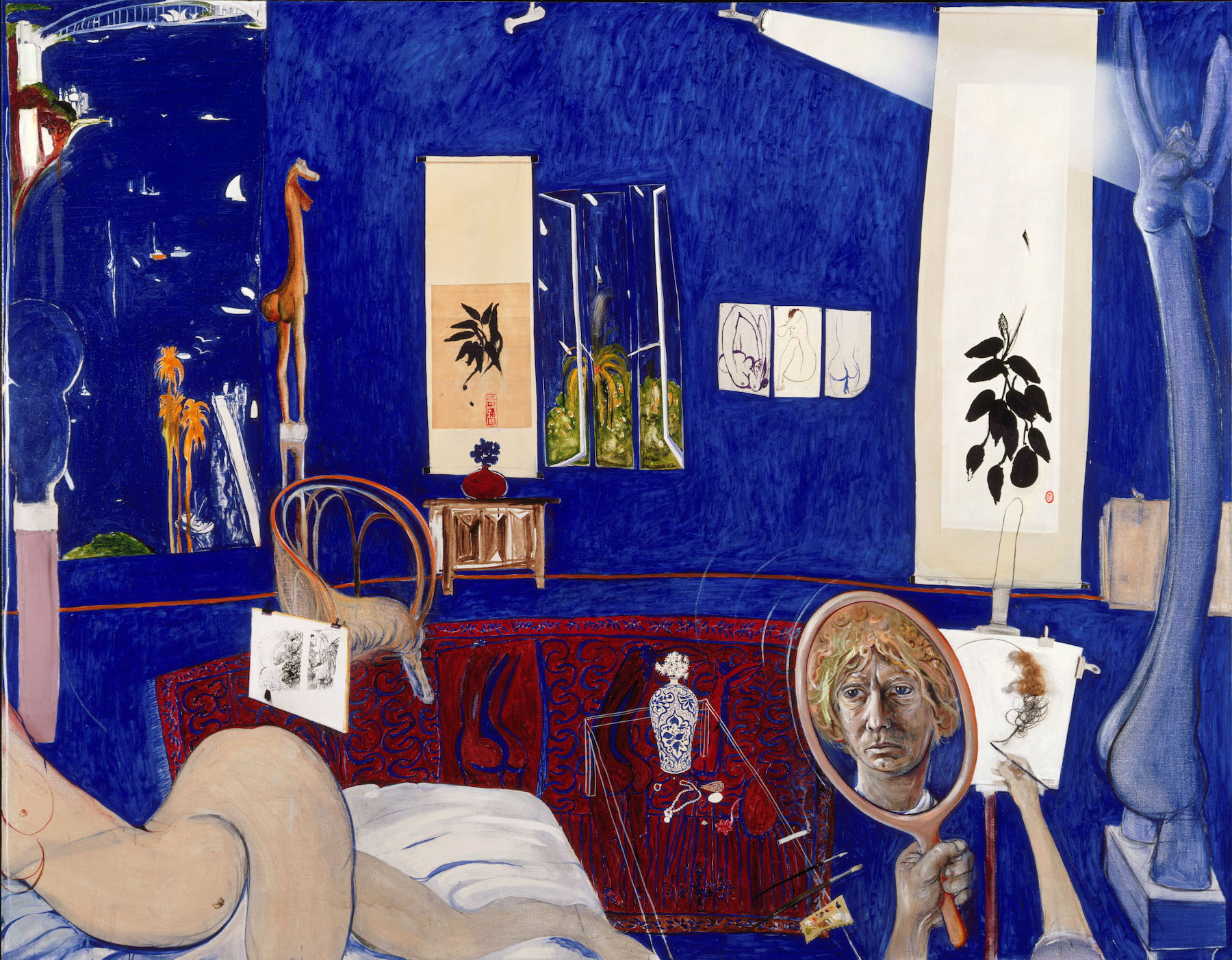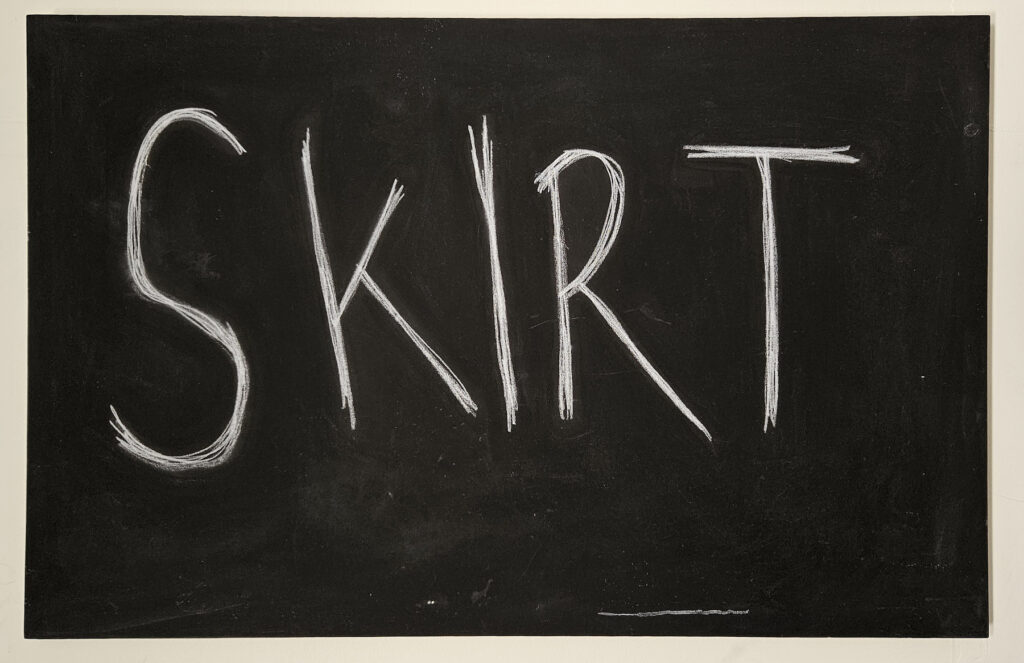
It is Friday the 9th of February. Heavy grey clouds are suffocating the city. I mop beads of sweat from my brow before disembarking the bus in Fortitude Valley. There is a grittiness to this place that I have always admired, an honesty seldom found in other areas of the city.
I’ve come here to visit 1WORKROOM9, the latest project venue from Dirk Yates, the founder of Speculative Architecture. I am familiar with Yates’ work, such as the impressive refurbishments of both Outer Space and the Institute of Modern Art nearby, so I am excited to learn more about his latest venture.
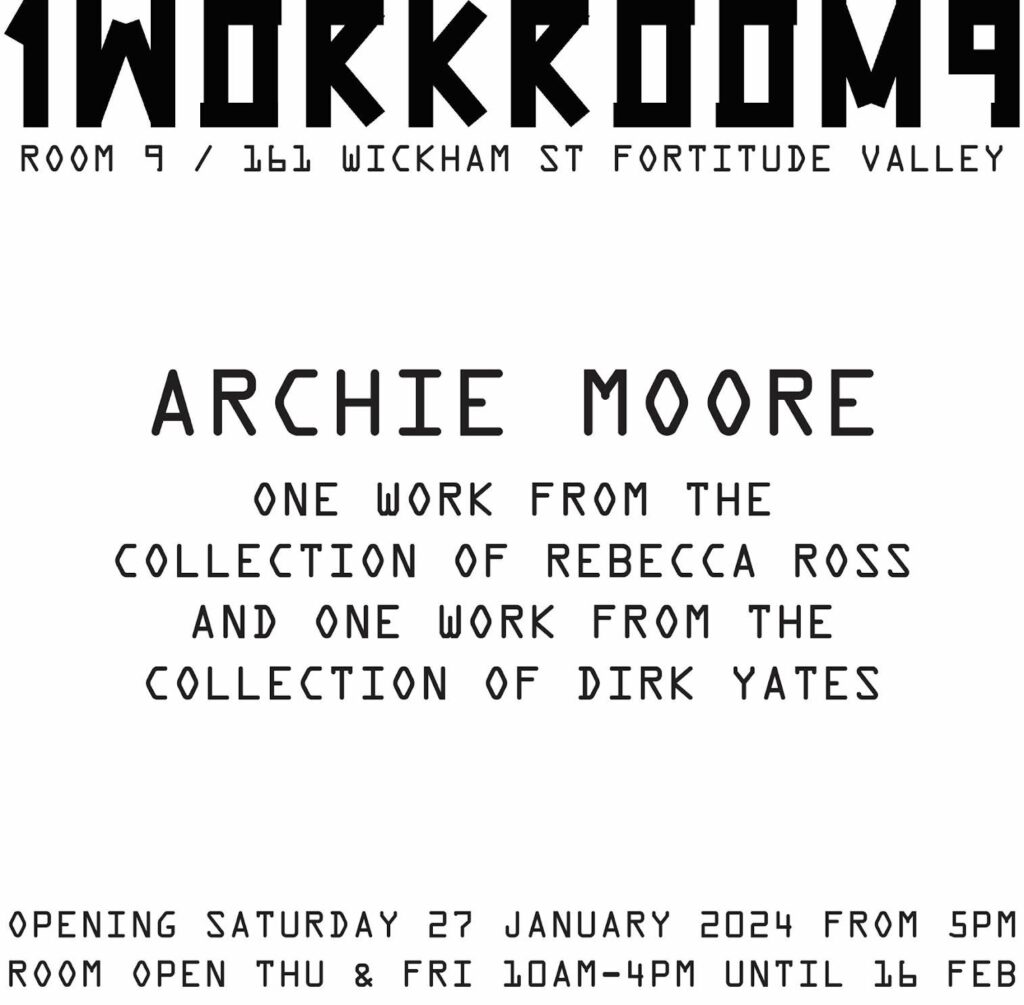
While conducting preliminary research, 1WORKROOM9 proved to be quite enigmatic. An early Google search bore no results bar a brand-new Instagram account (@1workroom9) with only one post: a black and white flyer in a bold graphic font. In today’s oversaturated social mediascape, where one can access almost anything at the touch of a button, the inability to learn more was refreshing. I was intrigued and excited in equal measure.
1WORKROOM9 is a dynamic, multidisciplinary project venue, one that fosters a culture of curiosity and deep engagement. In this spirit, the space will feature one work per exhibition. However, to commemorate its grand opening, 1WORKROOM9 strategically broke its cardinal rule by showing two works from Kamilaroi and Bigambul artist, Archie Moore.
The exhibition is timely given Moore is set to present a solo exhibition in the Australia pavilion at this year’s Venice Biennale. He is the second First Nations artist selected for a solo exhibition since the formal commencement of Australia’s participation in 1954. Moore’s exhibition, kith and kin, will be curated by the brilliant Ellie Buttrose, QAGOMA’s Curator of Contemporary Australian Art. The overlapping, interwoven connections shared by Moore, Yates, Buttrose, and Rebecca Ross (owner of one of the works in the show) makes this exhibition even more meaningful. They demonstrate a collective familiarity with and support of Moore’s work, beginning earlier in his career, and celebrate him as he takes to the international stage.
As I crossed the threshold of 1WORKROOM9, Metonym – lent from the private collection of Ross – drew my attention. Metonym is from Moore’s 2002 exhibition, Words I Learned from the English Class. In this confronting exhibition, Moore worked with words that were weaponised against him during his youth in rural Queensland.[1] In Metonym, a large canvas is transformed into a blackboard. Chalk in a sharp, erratic hand writes:
SKIRT
The aggression of this work – its single scrawled word – is unsettling. This feeling is compounded by the work’s title. A metonym is a figure of speech that replaces the name of a subject, object, or concept with something else it is closely associated with.
SKIRT
A word often associated with women and femininity. The uninitiated could be forgiven for missing this but, having grown up in rural Queensland myself, I was not unfamiliar with the pejorative vibrating before me.
SKIRT
A weaponised word. One wielded against boys and young men at odds with the standards of a heteropatriarchal social structure. A social structure that valorises the hypermasculine while objectifying and subordinating the feminine.
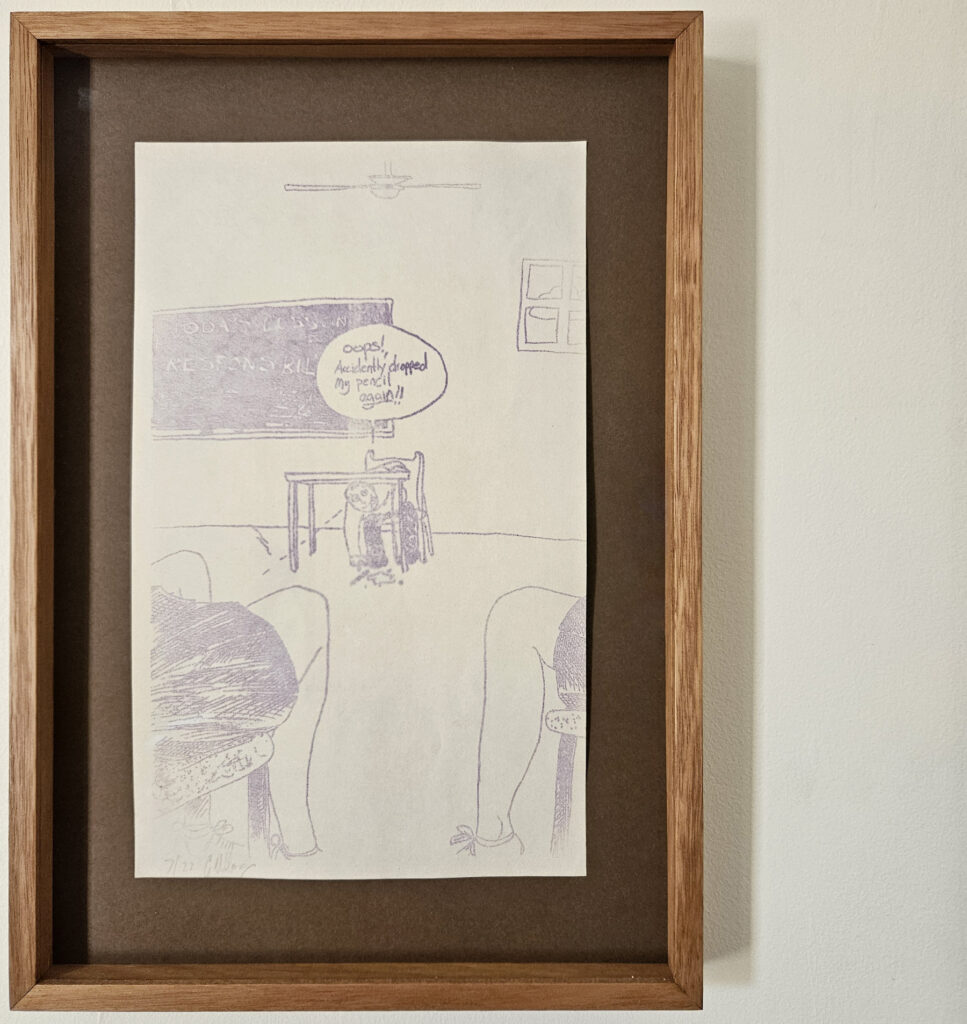
My interpretation of Moore’s work is affirmed as I gaze upon the second work, one from Yates’ private collection. An untitled fordigraph print on paper depicts a classroom scene. Beneath a blackboard titled “TODAY’S LESSON: RESPONSIBIL[ITY], a male teacher crouches beneath his desk and attempts to see up his students’ skirts. “Ooops!” he pronounces inside a speech bubble, “I accidentally dropped my pencil again!!” Moore’s fascination with the power of language recurs within this work, demonstrated through the use of his the pseudonym, Grubbanax Swinnasen, which appears at the bottom left corner of the print.
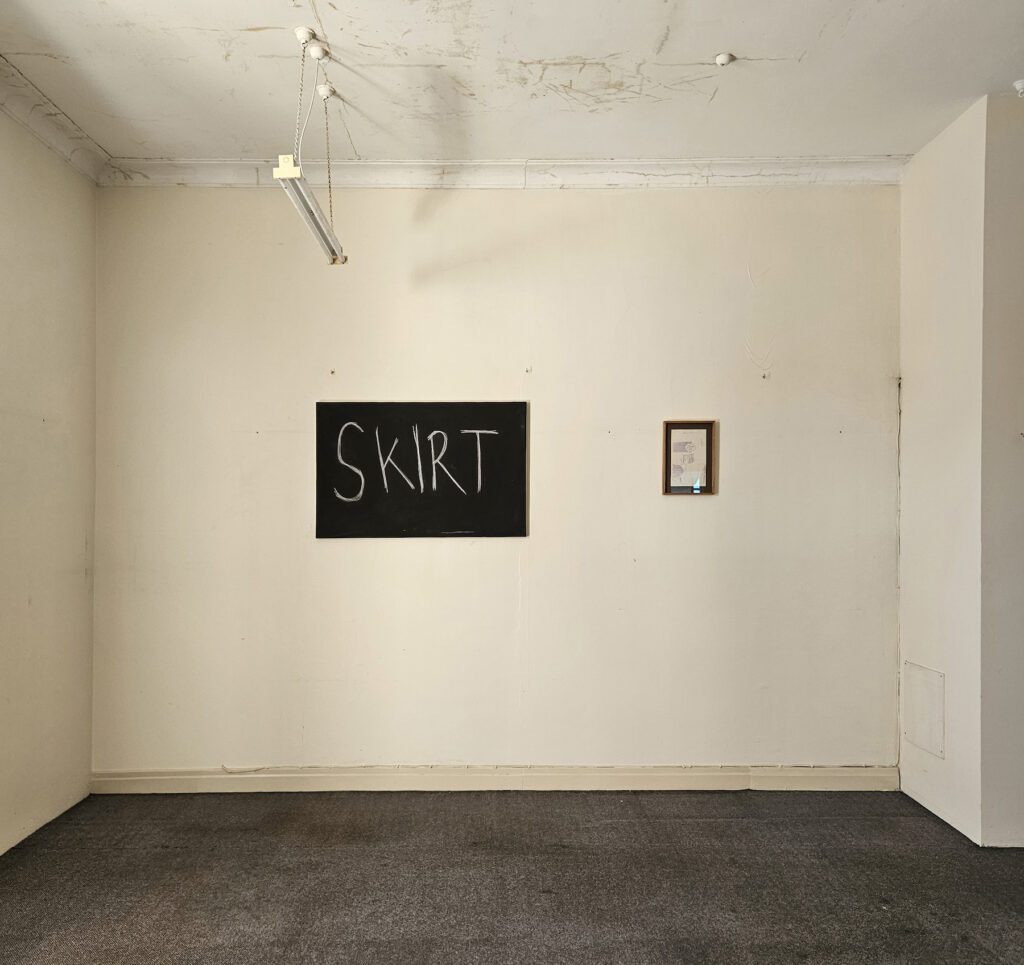
Metonym and Moore’s fordigraph – created five years apart – speak to one another in an intriguing way. With their exploration of rurality, education, and gender disparity, these works contemplate a key, overarching theme: power. Namely, the way that power is created, reified, and (ab)used by individuals who sit atop an imagined hierarchy within our colonial, heteropatriarchal social structure.
With this debut exhibition, 1WORKROOM9 establishes itself as a compelling, energetic space for visionaries, creators, and thinkers to collaborate and deeply engage with contemporary culture.
I eagerly await the next instalment.
This review was kindly made possible by Lemonade readers: Emma Crott, Easton Dunne, Jocelyn Flynn, Grace Herrmann, Kellie O’Dempsey, and Lucinda Wolber.
[1] Archie Moore, biography, DAAO.
Darby Jones is a freelance writer and editor with matrilineal ties to the Kamilaroi mob in Southwest Queensland. As an advocate for diverse representation in literature, he has dedicated his career to amplifying the voices of marginalised and underrepresented peoples.

